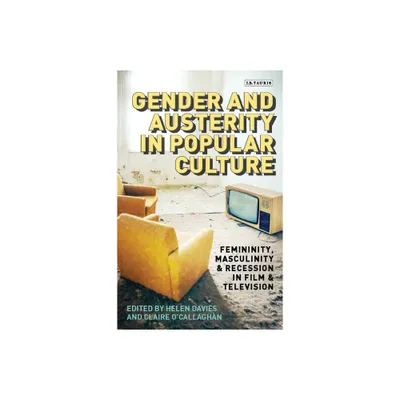Home
Wild Tongues: Transnational Mexican Popular Culture
Loading Inventory...
Barnes and Noble
Wild Tongues: Transnational Mexican Popular Culture
Current price: $25.00


Barnes and Noble
Wild Tongues: Transnational Mexican Popular Culture
Current price: $25.00
Loading Inventory...
Size: Paperback
*Product Information may vary - to confirm product availability, pricing, and additional information please contact Barnes and Noble
Tracing the configuration of the slapstick, destitute
Peladita/Peladito
and the
Pachuca/Pachuco
(depicted in flashy zoot suits) from 1928 to 2004,
Wild Tongues
is an ambitious, extensive examination of social order in Mexican and Chicana/o cultural productions in literature, theater, film, music, and performance art.
From the use of the
Peladita
Peladito
as stock characters who criticized various aspects of the Mexican government in the 1920s and 1930s to contemporary performance art by María Elena Gaitán and Dan Guerrero, which yields a feminist and queer-studies interpretation, Rita Urquijo-Ruiz emphasizes the transnational capitalism at play in these comic voices. Her study encompasses both sides of the border, including the use of the
Pachuca
Pachuco
as anti-establishment, marginal figures in the United States. The result is a historically grounded, interdisciplinary approach that reimagines the limitations of nation-centered thinking and reading.
Beginning with Daniel Venegas’s 1928 novel,
Las aventuras de don Chipote o Cuando los pericos mamen
, Rita Urquijo-Ruiz’s
demonstrates early uses of the Peladito to call attention to the brutal physical demands placed on the undocumented Mexican laborer. It explores
Teatro de Carpa
(tent theater) in-depth as well, bringing to light the experience of Mexican
Amelia Wilhelmy, whose “La Willy” was famous for portraying a cross-dressing male soldier who criticizes the failed Revolution. In numerous other explorations such as these, the political, economic, and social power of creativity continually takes center stage.
Peladita/Peladito
and the
Pachuca/Pachuco
(depicted in flashy zoot suits) from 1928 to 2004,
Wild Tongues
is an ambitious, extensive examination of social order in Mexican and Chicana/o cultural productions in literature, theater, film, music, and performance art.
From the use of the
Peladita
Peladito
as stock characters who criticized various aspects of the Mexican government in the 1920s and 1930s to contemporary performance art by María Elena Gaitán and Dan Guerrero, which yields a feminist and queer-studies interpretation, Rita Urquijo-Ruiz emphasizes the transnational capitalism at play in these comic voices. Her study encompasses both sides of the border, including the use of the
Pachuca
Pachuco
as anti-establishment, marginal figures in the United States. The result is a historically grounded, interdisciplinary approach that reimagines the limitations of nation-centered thinking and reading.
Beginning with Daniel Venegas’s 1928 novel,
Las aventuras de don Chipote o Cuando los pericos mamen
, Rita Urquijo-Ruiz’s
demonstrates early uses of the Peladito to call attention to the brutal physical demands placed on the undocumented Mexican laborer. It explores
Teatro de Carpa
(tent theater) in-depth as well, bringing to light the experience of Mexican
Amelia Wilhelmy, whose “La Willy” was famous for portraying a cross-dressing male soldier who criticizes the failed Revolution. In numerous other explorations such as these, the political, economic, and social power of creativity continually takes center stage.


















